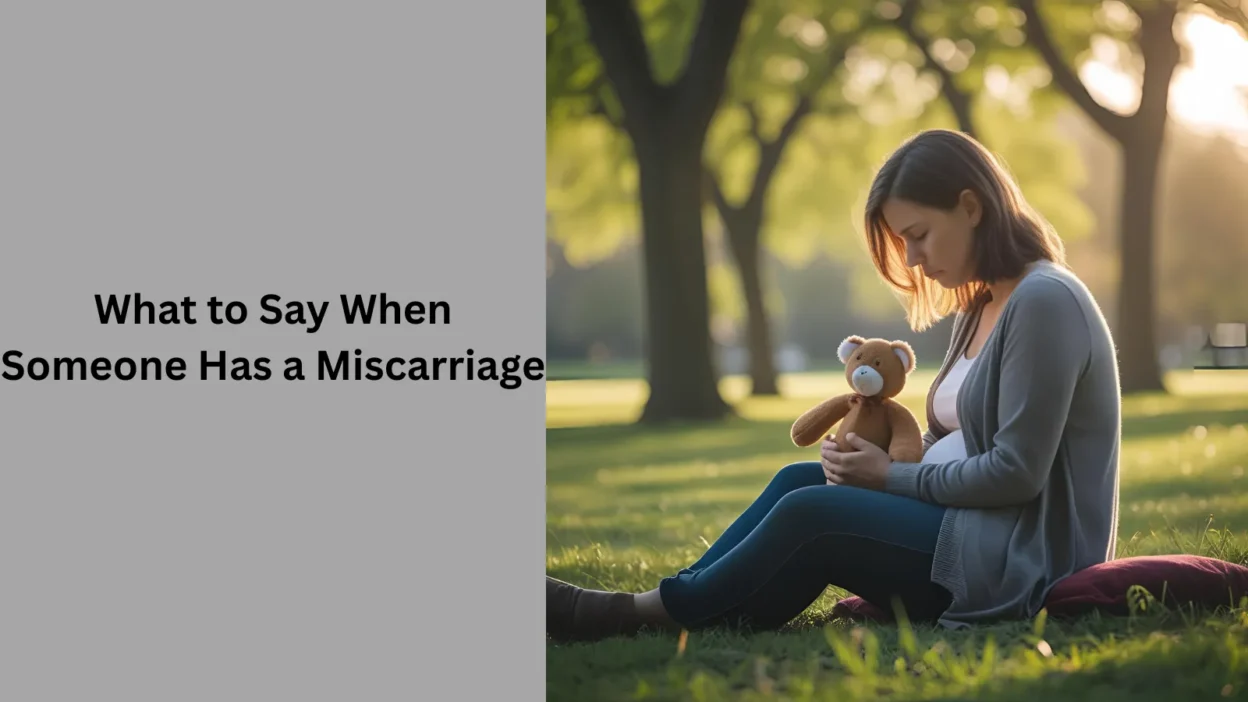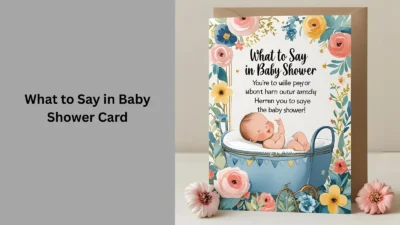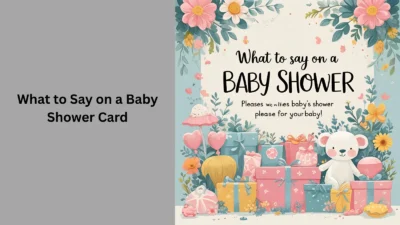Losing a pregnancy is heartbreaking, and finding the right words to comfort someone can feel impossible. If you’re wondering what to say when someone has a miscarriage, you’re not alone.
Miscarriage is a deeply personal loss, and your words can make a big difference in showing care and support. This guide offers simple, heartfelt ways to express sympathy while avoiding common mistakes.
Whether it’s a friend, family member, or coworker, knowing how to respond with kindness can help them feel less alone. Below, we’ll share practical tips, real-life examples, and phrases to use or avoid, all written in a supportive tone to help you navigate this sensitive topic.
Why Your Words Matter After a Miscarriage
Miscarriage is a loss that’s often unspoken, leaving people feeling isolated. Your words can show you care and acknowledge their pain. Saying something kind, even if simple, helps them feel seen. For example, imagine your coworker Sarah shares she had a miscarriage. A gentle response can make her feel supported at work.
What to say: “I’m so sorry for your loss, Sarah. I’m here if you need to talk.”
What not to say: “You can always try again.” This can feel dismissive of their grief.
Acknowledge Their Loss with Empathy
The first step is to recognize their pain without judgment. A miscarriage is a real loss, and acknowledging it shows you understand. Be sincere and keep it simple. For instance, if your friend Mia tells you about her miscarriage, a warm hug and kind words can mean a lot.
What to say: “I’m heartbroken for you, Mia. Your baby was so loved.”
What not to say: “It wasn’t meant to be.” This can sound like you’re minimizing their feelings.
Offer Support Without Pushing
People grieve differently, so offer help without expecting them to respond right away. Let them know you’re there when they’re ready. Suppose your neighbor Liam and his partner lost a pregnancy. A small gesture, like dropping off a meal, can show care without pressure.
What to say: “I’m here for you both, whether you want company or just a coffee.”
What not to say: “You should get out and distract yourself.” This can feel like you’re telling them how to grieve.
Avoid Common Phrases That Hurt
Some well-meaning phrases can accidentally cause pain. Avoid clichés or comments that suggest the loss isn’t significant. For example, if your sister-in-law Emma shares her miscarriage, steer clear of comments that imply it’s “no big deal.”
What to say: “I’m so sorry, Emma. Take all the time you need.”
What not to say: “At least it happened early.” This can make the loss feel less valid.
Listen More Than You Speak
Sometimes, the best thing you can do is listen. Let them share their feelings without trying to fix things. Imagine your friend Alex opens up about their miscarriage. Giving them space to talk can be more powerful than any words.
What to say: “I’m here to listen whenever you want to share, Alex.”
What not to say: “I know exactly how you feel.” Everyone’s experience is unique.
Check In After Some Time
Grief doesn’t end quickly, so checking in later shows you haven’t forgotten. A simple text or call can remind them they’re cared for. For instance, a month after your cousin Ava’s miscarriage, a thoughtful message can brighten her day.
What to say: “Just thinking of you, Ava. How about a walk soon?”
What not to say: “Are you over it yet?” This can make them feel rushed to heal.
Final Thoughts
Knowing what to say when someone has a miscarriage is about showing kindness and empathy. Your words don’t need to be perfect—just heartfelt.
Acknowledge their loss, offer support, and listen without judgment. Avoid phrases that might hurt, and check in later to show you care. By being thoughtful, you can help someone feel less alone in their grief.
Small gestures and sincere words go a long way in offering comfort during such a tough time.




